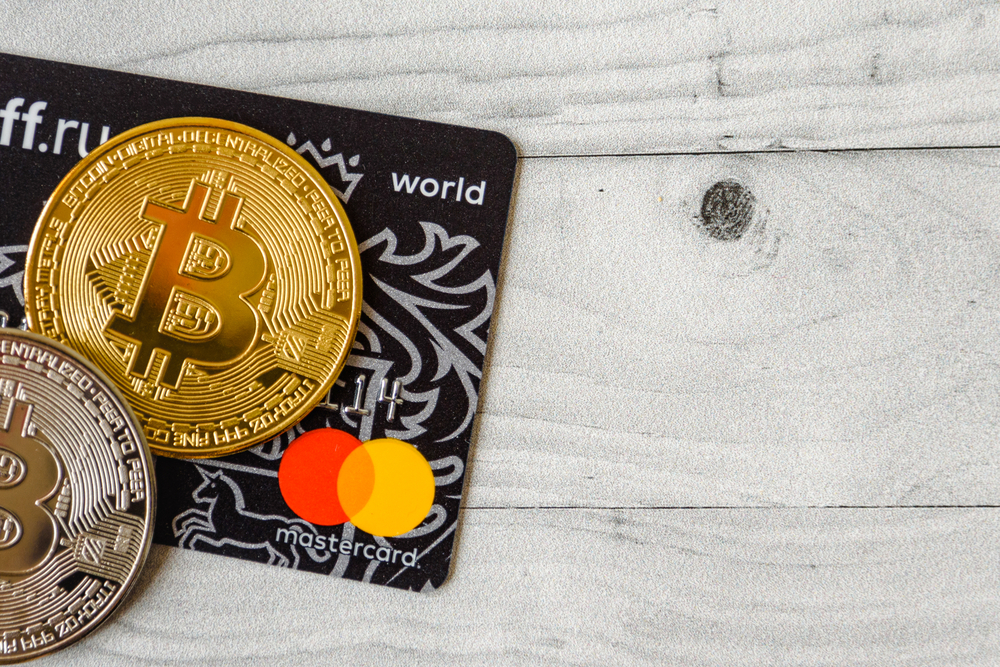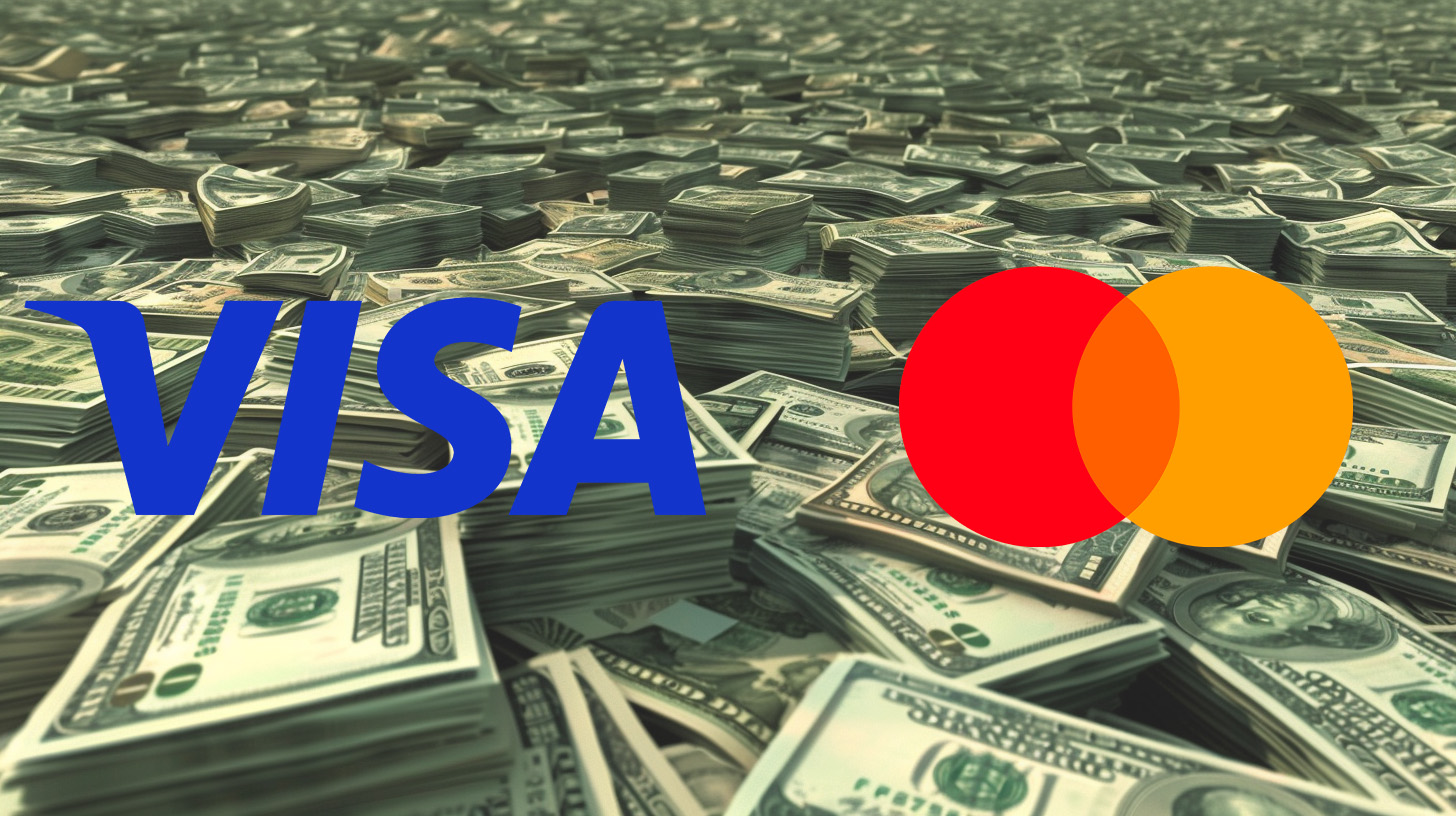
MasterCard Goes All-in on Crypto, Embraces the Future of Payment Processing
Oct 27, 2021 3 minute Read
About a decade ago, cryptocurrency began. Bitcoin was the one and only option and mined by just a few enthusiasts. At the time, crypto was arguably too futuristic to be taken seriously. Decentralized? Blockchain? Digital wallets? Very few were buying into the idea.
Fast-forward 10 years and we’ve reached the point in crypto’s lifecycle where it’s fully embraced by both Visa and MasterCard, with the latter making today’s headlines. This leap forward in acceptance for merchants, artists, and consumers, as well as security assurances, leans heavily on the idea that cryptocurrency is the future for payment processing.
MasterCard Teams Up with Bakkt
First and foremost, MasterCard is a payment network. The announcement by MC means the network is more capable of transferring and processing crypto payments, but it is still just a network. That means the crypto has to come from somewhere and be stored somewhere where it isn’t subjected to volatility of the market. That’s what Bakkt provides: cold storage.
What is Bakkt?
Bakkt is a digital asset platform, a custodial wallet, storing Bitcoin in cold storage where it’s secure. It’s owned by Intercontinental Exchange (ICE), which is the parent company of the Wall Street’s New York Stock Exchange (NYSE). What that means is Bakkt is able to appeal to investors and institutions who use NYSE but want to get into cryptocurrency in a federally regulated environment.
Essentially, it’s bringing old money players into the new money game with a crypto exchange and wallet.
Just this month, Bakkt began trading on the NYSE as BKKT. Since the MasterCard announcement, shares for Bakkt rose by over 150%.
How does the agreement affect MasterCard cardholders or merchants?
According to CNBC, the card network stated that all of the merchants, fintechs, and banks using its network will be able to integrate crypto into their offerings. That means merchants can accept crypto as payment from consumers and banks can accept crypto, using Bakkt to hold the funds.
For banks, in particular, customers won’t need to sign up for a Bakkt account or really make much effort at all. Though it hasn’t been outlined just yet, banks will presumably accept MasterCard’s new terms related to Bitcoin in order for them to use Bakkt services for cold storing crypto. This way, banks don’t need to create some form of proprietary crypto storage or technology, nor force customers to migrate funds to a crypto wallet.
For cardholders, a new card will be issued that allows the transfer of digital assets. The new feature can’t be added to current physical MasterCard credit cards or debit cards. But it’s a simple request/exchange if cardholders want to make use of the new tech.
Why has MasterCard announced their commitment to crypto?
It’s a 180-degree twist for the credit card network. In 2018, MasterCard outright banned crypto. The company was so against this new form of currency that it banned cardholders from using its network to purchase crypto or transferring funds to cryptocurrency exchange platforms.
Last year, in 2020, MasterCard changed its stance on crypto by purchasing the then-fallen crypto card service Wirecard. The move reflected how institutions have (or wanted to) embrace the new fintech as the next evolution in currency. They’ve also released their own NFT. Clearly, the network is interested in blockchain tech and crypto (as long as it can utilize stablecoins).
Now, in October 2021, MasterCard has made even bigger strides to get crypto into the hands of the people who use their network most. Maybe this is because they, too, have finally embraced crypto as the currency we will all use in the future. Or maybe this is to protect their own investments into the crypto world, meaning if they don’t at least try to put crypto into the people’s hands, then all their previous efforts are for naught and the original 2018 view was correct.
What about Visa’s stance on crypto?
The logical next question: but what about Visa? Visa has long accepted cryptocurrency. The network has supported crypto exchanges and wallets like Coinbase and Binance by at least allowing traders to transfer funds. But they’ve also allowed merchants to accept bitcoin as a valid payment method from consumers.
To complete the card network trifecta, American Express stated it won’t be supporting crypto anytime soon as it plans to keep focus on traditional credit cards and credit card processing. As solely an opinion, it makes more sense for Amex to take this stance because it’s more of a closed-loop service. It’s a card network but also a card issuer, so it doesn’t really connect to other institutions. In comparison, Visa and MasterCard rely on other financial institutions to dole out cards that use their respective networks, which also makes it easier to incorporate other fintech solutions like crypto holdings.
Will reward programs be affected?
Yes, loyalty programs are affected but in a good way. MasterCard and Bakkt have confirmed that customers will be able to earn, collect and spend loyalty rewards via cryptocurrency. Merchants will even be able to convert traditional loyalty points into bitcoin, if they so wish.
Credit cards often have some specific appeal to consumers in the form of rewards. Some home in on travel and flights, others use daily cash back, restaurant points, gas station rewards, clothing, and essentially everything. Nowadays, it’s common for consumers to compare cards and pick the one that has the best reward program for their habits. Allowing those rewards to convert as well as offer new types of rewards (say, if a customer uses crypto on their grocery purchase, they can earn an extra 2x points).
Payment Processing Looks Toward the Future of Consumerism
The crypto market valuation for 2021 $1.2 trillion, market capitalization reached an all-time high in May at $2.4 trillion, and adoption rates have soared by over 880% as of Q2 2021. However, the US ranks fairly low on the list of countries by adoption rate. Countries like South Korea and Brazil see adoption rates above 20% and that number will certainly grow in the coming years, especially as Visa and MasterCard fine tune their offerings.
Even if the US is lower down in the rankings, it’s still driving the crypto market. And MasterCard is a global network, meaning it needs to look at the bigger picture and the increasing demand. Younger consumers are heavily interested in the currency tech. Preparing the network for use makes it more readily available to anyone interested as well as increasing the implied security and understanding of it.
In fact, 75% of millennials would use crypto if they could understand it better. By allow banks to offer crypto wallets, it takes the idea of trading away from the currency, because many people associate Bitcoin only with trading. Now, consumers will be able to use crypto to make daily purchases while protecting their funds and avoiding things like international exchange fees.
Possible Fees And Fee Alleviation Stemming from the MasterCard, Bakkt Partnership
While it hasn’t be explicitly announced, you can rest assured that there will be fees just like with tradition card processing.
Currently, cryptocurrency is a bit convoluted when making traditional purchases (as opposed to simply trading crypto). A lot, if not most, of these fees occur because consumers aren’t spending crypto in the same way they’d spend USD. They swipe their card, Bitcoin from their crypto wallet is withdrawn, converted to a traditional currency, and then deposited into the merchant’s bank account. There’s a conversion fee, fee from the crypto wallet to release funds, fee for the exchange to traditional currency, and sometimes a monthly fee. Simply put, crypto credit cards right now are great for buying or selling crypto, but not for regular life products. They’re just too expensive.
With Bakkt, MasterCard can get rid of all that hassle, and even get rid of some traditional fees altogether. The need for exchanging crypto is null since merchants will be able to accept and deposit cryptocurrency directly. Bitcoin is an international currency, so there doesn’t need to be an international transaction fee. Bakkt cuts out essentially all of the middlemen and lets consumers send the currency of their choice directly into the merchant’s account.
We don’t know yet what those fees are, but we are certain they will be friendlier to both consumers and merchants. Afterall, MasterCard wants you to adopt cryptocurrency into your routine, no matter which side of the card you’re on. And if the Hertz Network is anything to go off, transactions will be fast, fee-free, and ultra-secure.
As Networks Adopt Crypto, Payment Processors Will Follow
Payment processors will certainly update their own capabilities to match network and bank offerings. MasterCard Inc. announced a huge step forward for marketers on what’s able to be processed on their network, and Bakkt provides an integrated location for digital currency holdings. The next step is for processors to update their own capabilities. That should be much easier now, especially considering the overall rising trend of cryptocurrency.
Many big companies have embraced crypto in their own ways. Tesla is considering accepting crypto payments again. Apple has reversed it’s 2014 decision to ban crypto wallets from iOS. Cryptocurrency services are quickly becoming an ecosystem of their own, and it’s running at a pace that will quickly overtake traditional currency within the next couple of decades. With Bitcoin, Ethereum, and
If you’re interested in accepting crypto for your e-commerce business, stay tuned for more news about card networks and cryptocurrency processing. Crypto payment processing for high-risk merchants is already available, but will soon be much more accessible.




